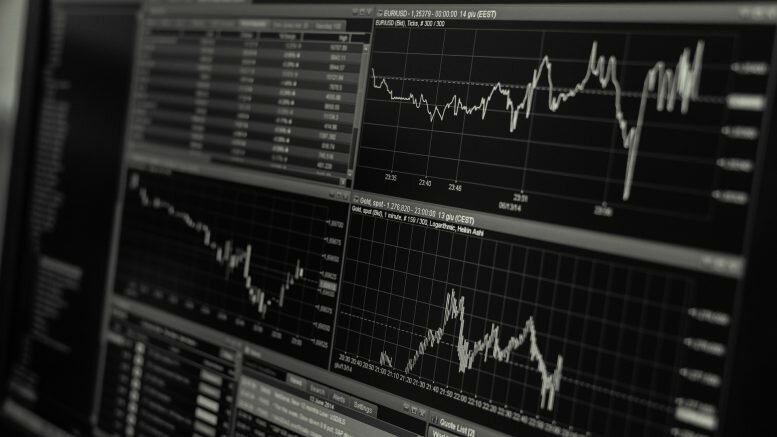Illuminating lessons from the Oracle of Omaha
The Oracle of Omaha, the nick name for Warren Buffet, who is one of the most renowned investment gurus in the world and the owner of Berkshire Hathaway (BH).
Berkshire Hathaway recently published its 53rd annual report on February 24, 2018 which also includes, ‘Warren Buffett’s Letters to Berkshire Shareholders’. His investment strategies are enshrined in his letters. Whether you are a novice businessman or a veteran investor doesn’t matter, you will have a clue or cue to kick start a new investment style which is sustainable.
Importance of a long term investment approach
The majority of the investors tend to speculate for a short term to book profits. Warren Buffet says in his letter to the shareholders of BH that he can’t offer assurances to any investor who is looking for a short term investment. He assures investors of a return if they are at committed for a period of five years, minimum.
Buffet admits that he became a party to derivative contracts and soon after abandoned short term commitments. Even though derivative contracts seem to be profitable in his case, he is not interested in dealing with short-term instruments.
Ultimately Buffet discourages short term investors. He urge the investors to take decisions in the pursuit of maximizing long-term results, taking risk in staying long and bearing the consequences of decisions.
Warren Buffet quotes the great investment guru and his teacher Ben Graham’s words: “In the short-term the market is a voting machine; in the long-run it acts as a weighing machine.”
Invest early and enjoy the benefit of compounding.
Buffet bought his first stock, shares of Cities Service for $38 apiece, at age 11. As and when you receive your first salary, you should try to invest right away and take advantage of the principle of compounding, he says.
Warren Buffet is a very good teacher who seamlessly uses stories with his typical wit and down-to-earth style. Let us take his lessons on compounding.
His first lesson on compound interest to the investors is the narration of stupid decision taken by Queen Isabella to fund Christopher Columbus’s expedition to find a new route to Asia. The monetary amount of $30,000 was invested for the expedition. Warren’s proposition is that if that same money was invested for 4% interest rate, it would be worth over $ 7 million today.
Buffet’s second lesson on compound interest takes a peep in to the decision taken by King Francis to commission the Mona Lisa in 1516 for a sum of $20,000. The same amount would be a staggering $1 quadrillion if it was invested at a 6% annual rate.
Even if small amounts of money are invested systematically over a longer period of time, adds up to unbelievable amounts.
The ‘compounding’ is the buzz word which is the very foundation of Buffet’s success in the financial markets. As he demystifies the concept to share holders, they start incorporating the elite principle on which their master has built a wonderful organization. In the share holders meeting, the dividend question- whether it should be distributed or reinvested came up and surprisingly majority of the shareholders voted for reinvesting all the earnings. Warren writes, “To have our fellow owners – large and small – be so in sync with our managerial philosophy is both remarkable and rewarding.”
Don’t Put All your Eggs in One Basket
If you see the fifteen common stock investments that Berkshire Hathaway had the largest market value: Starting from American Express Company to Apple Inc all the way to Delta Airlines Inc, Coca-Cola Company, US Bancorp and Wells Fargo Company, we see one very important principle that is followed –the investments are well diversified. Buffet’s exemplary skills to diversify have made the BH immune to sector specific shocks.
Accumulating cash in the business is like oxygen to the individual
Cash is thought to be an unproductive asset, something business organizations do to minimize it. It was in 2008, that ‘cash concept’ became the buzz word of the American business due to Sub-prime mortgage crisis, many large organizations had their checks bounced and their cash disappear, forcing them to shut down their operations.
But in Berkshire Hathaway, supplied $15.6 billion of fresh money to American business during the crisis. It was possible only due to the huge amounts of cash to the tune of $20 billion and more which was maintained as cash equivalents. US treasury bills were the favourite investments of BH which delivered liquidity.
Every Mistake becomes a part of the learning curve
Warren Buffet admits in his letter to Berkshire Shareholders that he has made a lot of mistakes but the only one factor which makes him unique is the resilience to learn from those stupid decisions.
He purchased a company called Dexter Shoe in 1993. It was a good company having excellent financial credentials. Buffet didn’t think about the macro factor called foreign competition which took the life of Dexter shoes. Eventually, Berkshire paid $433 million for Dexter’s sellers in stocks, whose value subsequently became $5.7 billion. He admits that it was a financial disaster.
When Spin-off makes no sense
Tax experts and others propose that Berkshire is a huge organization and it should be spin-off. Buffet says that the value of Berkshire Hathaway when combined with its companies is a bigger force than as separate entities.
He explains why Spin-offs make no sense:
Firstly, funds cannot be moved between businesses or to new businesses thereby nullifying a tax advantage.
Secondly, costs multiply if the companies are separated and certain costs duplicate themselves.
Thirdly, there will be multiple boards of directors and costs will escalate.
Fourthly, regulatory and administration expenditures will go through the roof.
Finally, certain tax credits are available for Subsidiary A because Subsidiary B is also part of the business. Those tax credits will cease to exist. For example: Berkshire Hathaway Energy is having a major advantage over other public –utility companies in developing renewable energy due to the other subsidiaries of BH. In his letter to the shareholders Buffet writes that the organization received $29 billion in December, when Congress rewrote the U.S. Tax Code. This much tax advantage would not have occurred if BH was spin-off.
The ABC of business decay
Businesses fail because of three reasons according to Warren Buffet, the reasons being:
- arrogance
- bureaucracy
- complacency
Even the strongest of the companies can be weakened by these three evils. He points out big multinational corporations and companies like General Electric, IBM, Sears Roebuck and U.S. Steel, which was once thought to be invincible, but who have all failed dismally.
He makes the point that the CEO of the organization has to ward off these three evils and has to ensure that these debilitating forces never affect the organization in any ways.
References
http://www.berkshirehathaway.com/SpecialLetters/WEB%20past%20present%20future%202014.pdf
http://www.berkshirehathaway.com/SpecialLetters/CTM%20past%20present%20future%202014.pdf
http://www.berkshirehathaway.com/donate/fortune071006.pdf
http://www.berkshirehathaway.com/letters/2017ltr.pdf
https://www.berkshirehathawayenergyco.com/
This guest article was written by Trichur Venkiteswaran Rajesh
/ #Norway Today




